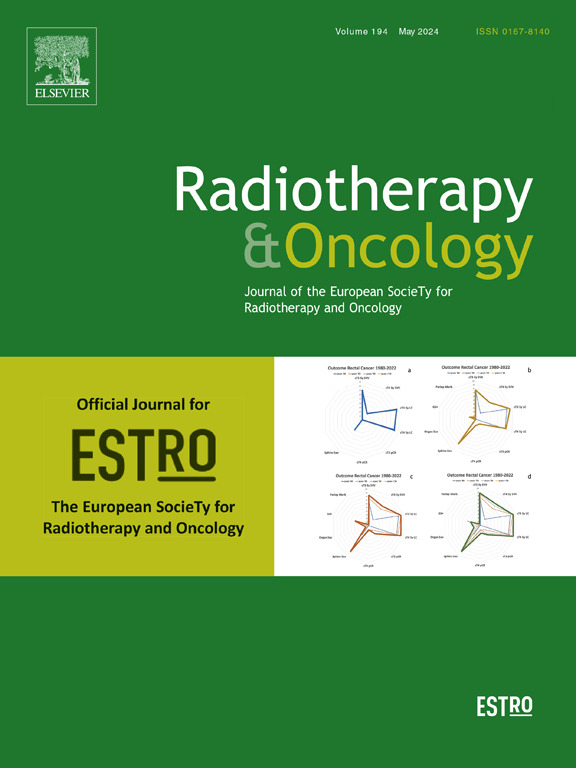提高放射肿瘤学的绩效:质量改进干预措施的国际系统回顾。
IF 4.9
1区 医学
Q1 ONCOLOGY
引用次数: 0
摘要
本文章由计算机程序翻译,如有差异,请以英文原文为准。
Improving performance in radiation oncology: An international systematic review of quality improvement interventions
National cancer audits and registers have highlighted significant national and international variation in patient care and outcomes. Quality Improvement (QI) is mandated in radiation oncology but the interventions designed to support QI in this field remain poorly understood. This paper seeks to assess the types of QI interventions in radiation oncology, the QI evaluation design and their impact on process of care measures and patient-related outcomes. MEDLINE and EMBASE were searched systematically for studies of QI interventions in radiation oncology between 2000 and 2024. The studies needed to identify the quantitative or qualitative impact of the QI intervention on process of care measures or patient-related outcomes. Study results were summarised using narrative synthesis and appraised using the Quality Improvement Minimum Quality Criteria Set (QI-MQCS). 26 papers were included in the analysis. The majority of studies were conducted in the USA (n = 13) and in Europe (n = 7), with only two studies conducted at a national level. Ten studies covered all tumour types, with six specifically focusing on head and neck cancers, two each on prostate and nasopharyngeal cancers, and one study each examining lung, cervical, rectal, and breast cancers. The aspects of care evaluated most frequently were those relating to reducing waiting times or increasing utilisation of radiotherapy as per guidelines (n = 15), followed by those seeking to reduce radiotherapy contouring variability (n = 5) and those involving the management of symptoms during or after radiotherapy treatment (n = 6). Only 42 % of studies reported funding, with the most frequent funding source being national, government or federal (n = 6). All QI interventions across the 26 studies were successful as they resulted in an improvement in a process or patient-related outcome measure. The studies scored between 10 and 15 out of 16, according to the QI-MQCS criteria. Despite substantial investments in cancer research and development, there is a scarcity of information on how to enhance the quality of care in radiation oncology. While there are examples of national cancer audits and registers in a number of countries, much of the research in QI interventions is being conducted in the USA. This situation underscores the need for more comprehensive, well-funded studies and improved training for clinicians to conduct high-quality improvement activities and research. There should be a greater emphasis on the substantial gains that can be achieved by improving existing care in terms of access and outcomes, rather than solely focusing on innovation.
求助全文
通过发布文献求助,成功后即可免费获取论文全文。
去求助
来源期刊

Radiotherapy and Oncology
医学-核医学
CiteScore
10.30
自引率
10.50%
发文量
2445
审稿时长
45 days
期刊介绍:
Radiotherapy and Oncology publishes papers describing original research as well as review articles. It covers areas of interest relating to radiation oncology. This includes: clinical radiotherapy, combined modality treatment, translational studies, epidemiological outcomes, imaging, dosimetry, and radiation therapy planning, experimental work in radiobiology, chemobiology, hyperthermia and tumour biology, as well as data science in radiation oncology and physics aspects relevant to oncology.Papers on more general aspects of interest to the radiation oncologist including chemotherapy, surgery and immunology are also published.
 求助内容:
求助内容: 应助结果提醒方式:
应助结果提醒方式:


